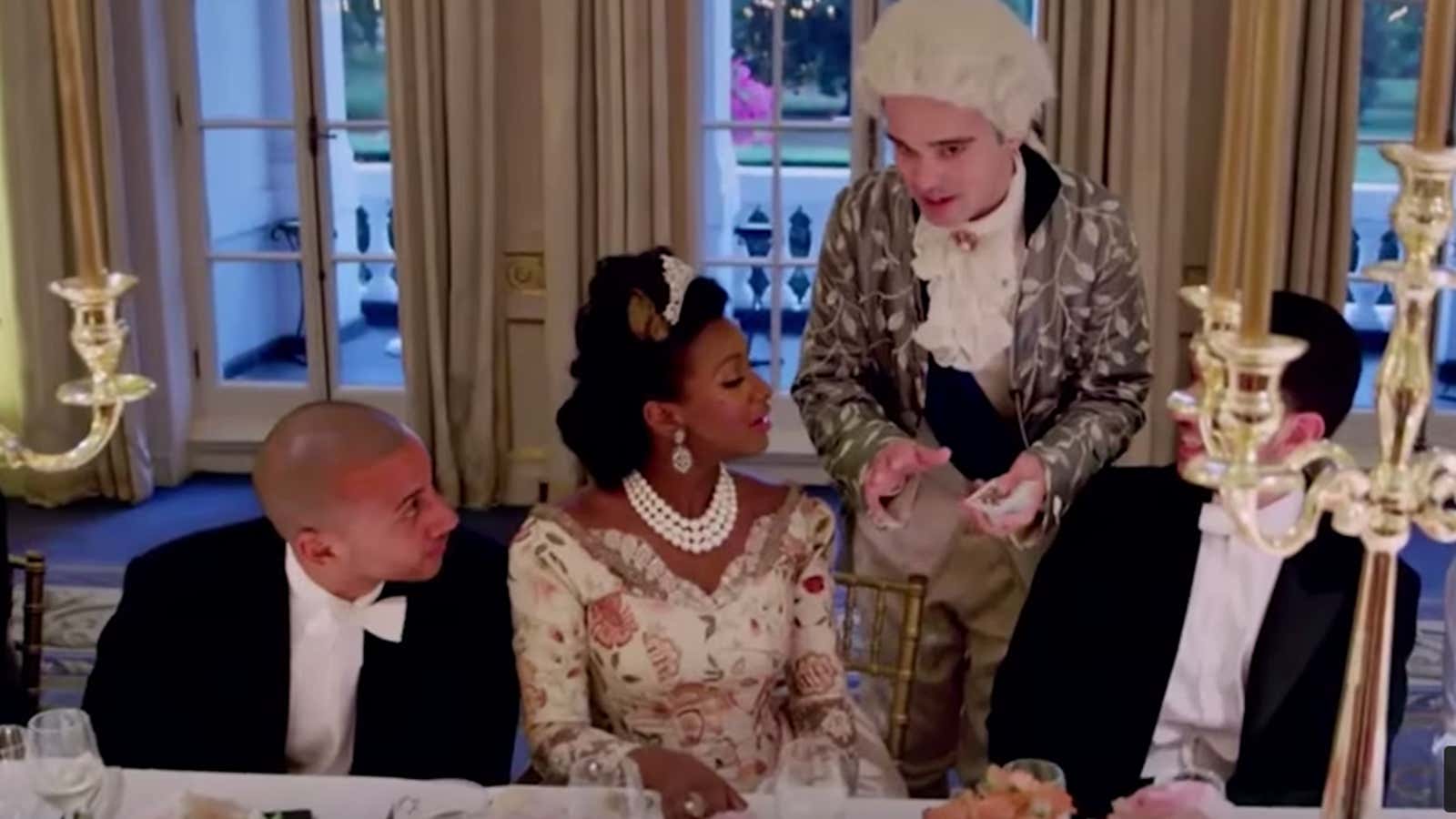Nigeria’s ‘super-rich’—or rather, their children—have been a source of intrigue bordering on obsession within the British media for the best part of the last 18 months, as a ‘new’ breed of uber-consumer, jetting in from Lagos to live the high-life in London.
Along the way, they are apparently snapping up upscale property, private education and luxury consumer goods—in between jaunts to the city’s most exclusive nightclubs.
The latest hagiography of these Nigerian transatlantic trust fund babies, is a one-hour TV documentary featured on the UK’s Channel 4 last week (June 7).
“In London’s poshest neighborhoods, Nigeria’s super-rich are moving in,” the narrator breathlessly declares in the opening seconds of Lagos To London: Britain’s New Super-rich.
All against the backdrop of a dark blue Bentley Coupé parked next to a classic Georgian townhouse, a row of the ‘mansion block’ apartments found in many upscale corners of the city and a snippet of a 200-head banquet held at the Mandarin Oriental Hyde Park hotel, that turned out to be a graduation party and not a wedding.
“Hey, some people have graduation photos – we just happen to have magazines,” pipes up the celebrant Florence ‘Cuppy’ Otedola next. She’s the 23 year-old ‘DJ’ daughter of Nigerian oil magnate and Forbes-lister Femi Otedola, who likens herself to a latter-day Marie Antoinette—only with diamond-encrusted Beats headphones. And the bill for her party? Apparently the equivalent of “two nice cars.”
The Otedola sisters are very active on Instagram. Here’s Cuppy and her billionaire father Femi Otedola.
Her 19 year-old ‘fashion blogging’ sister Temi, not to be left out the Parisian splendor, had opted for a Moulin Rouge-themed soirée for her 18th birthday. So far, so cosmopolitan. She’s Instagrammed below.
“We follow a new generation of Nigerian elite as they live, work and party—between Lagos and London,” the show’s narrator goes on to promise.
Except that we largely don’t. What we mostly see is the progeny of high-profile Nigerians working hard at spending easy money at places like Harrods. “I try to make it a point of duty to have a personal shopper in different states,“ Lagos ‘media personality’ Toke Makinwa earnestly informs us. That’s London and New York by the way.
Out of all of the characters featured in the program, only one—British-born Alex Amosu appears to be close to doing anything that resembles ‘work’ and being ‘self-made’ as the world mostly defines it.
Is he the creator of some disruptive technology that aims to change the way we live? Solar power perhaps, that will bring Nigerian industry and society literally into the light? No. He sticks 14-carat diamonds onto mobile phone sets—and sells them on to other wealthy Nigerians.
And then you have the 28 year-old Mbadiwe twins Ozee and OC, about whom it is never really clear what they do—other than bask in the light of their distinguished family name, in between selfies.
The show—and Twitter—provided the perfect sounding board for comment and opinion – a heady mix of admiration, aspiration and outrage – among Nigerians at home and in the diaspora.
But arguably the most cogent online commentary on the program could be found away from the twittersphere.
Fans of Lagos To London will argue that the show and the other media stories like it are sorely needed—as alternative narratives to Boko Haram, the Niger Delta Avengers and endless stories of mind-boggling corruption—precisely what Nigeria needs to counter the country’s long-held stereotypes.
But just how much of an alternative are these narratives? Do they seek to pursue a higher truth for a nation misconstrued? What is clear is that they are utterly at odds with the daily monetary experiences of most Nigerians at the moment.
Nigeria may be Africa’s largest economy, but it’s an economy in a mess.
With more people living in poverty than in any other African country, Nigeria is on the brink of recession, the naira is in freefall against the dollar with imminent devaluation a real possibility, and inflation was at 13.6% in April, a six-year high.
Oil production is at its lowest in 20 years, due to poor infrastructure, spiraling global prices and sabotage from the latest iteration of militants in the Delta.
Nigeria also has acutely low foreign exchange reserves of around $27 billion and high unemployment at 12.1% in the first quarter of this year.
Stories in western media of young Nigerian playboys and debutantes spending their inheritance via armies of personal shoppers stationed from London to New York via Dubai are a rather unsavory counterpoint to the life lived by Nigerians at home and their attempts to get a grip on an out-of-control economy.
The irony in last week’s documentary is that it featured the grandchildren of some of Nigeria’s late prominent statesmen—former Lagos State Governor Sir Michael Odetola and Kingsley Ozumba Mbadiwe, a minister of the First Republic. But there was a saddening lack of awareness of their own legacy and what their lives say about a country that could be so much more than it is. None of them had anything to say about their homeland, other than perfunctory references to the ‘family business.’
As obsessed with Instagram as they are with instant gratification, the Lagos-to-London super-rich are akin to a gaggle of Nigerian Neros—fiddling while home burns.
Nigerian elites presenting as shallow, luxury goods-obsessed dilettantes provides no more context to the story of Africa’s most populated country than the ubiquitous tales of economic crises, religious fundamentalism and corruption.
Correction: Nigeria’s current foreign reserves are at $27 billion, a previous version had stated $27 million.
